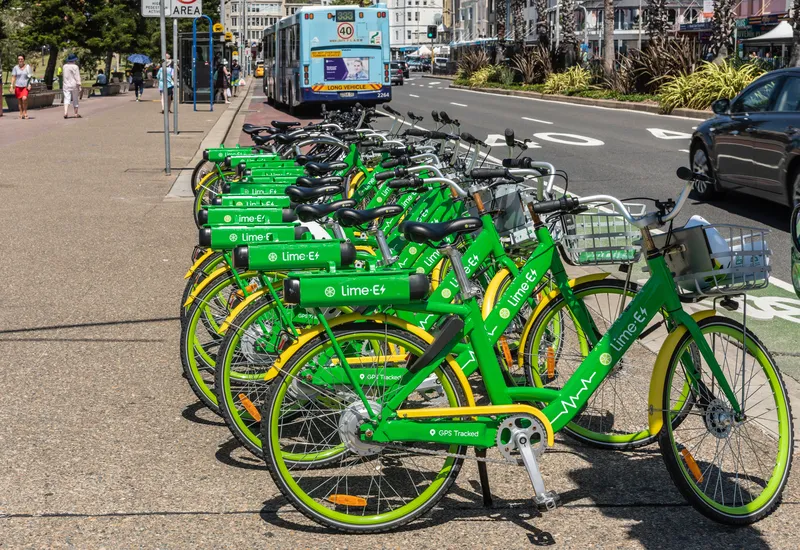The 5th Fuel Cell Electric Vehicle Drive ‘n’ Ride event was recently held in Strasbourg, France, under the patronage of Brian Simpson, Member of the European Parliament (MEP) and chair of the European Parliament’s transport and tourism committee, to demonstrate the readiness of fuel cells and hydrogen as a viable route to zero emission transport in Europe.
October 29, 2012
Read time: 3 mins
The 5th Fuel Cell Electric Vehicle Drive ‘n’ Ride event was recently held in Strasbourg, France, under the patronage of Brian Simpson, Member of the European Parliament (MEP) and chair of the European Parliament’s transport and tourism committee, to demonstrate the readiness of fuel cells and hydrogen as a viable route to zero emission transport in Europe.
Over two days, MEPs, political advisors and other stakeholders had the experience of test-driving six different models of fuel cell electric cars by2069 Daimler, 1683 Honda, 1684 Hyundai, Intelligent Energy, 4233 Opel and 1686 Toyota. Participants also saw the refuelling process at a fully mobile and compact hydrogen station, the first of its kind, provided for the occasion by Air Liquide.
“The future of European transport is very high on the European Parliament’s agenda. We need to find ways to make our transport system more sustainable and environmentally responsible while contributing to the economic recovery and growth in Europe. Deployment of practical and efficient clean technologies is an indispensable part of the solution for a low- carbon transport system. Europe can’t miss this opportunity,” stated Brian Simpson, ahead of the event.
The Drive ‘n’ Ride event aims to address the challenges associated with building refuelling infrastructure and reducing costs with production scale. It follows the announcements by national governments in Germany, the UK and Scandinavian countries to support market introduction of fuel cell electric vehicles and refuelling stations. The German government, for example, has announced the fourteen stations currently available in Germany should be increased to 50 sites by 2015. Other European countries like France or the Netherlands are also analysing the potential of hydrogen mobility on their territory.
“Fuel cell electric vehicles and the refuelling technology are clean, safe and ready for deployment. They live up to expectations and are comparable to internal combustion engine vehicles in terms of range and performance. The key question now is how to bring them to the market as a competitive option,” added Pierre Etienne Franc, Director of Technologies of the Future at Air Liquide and Chairman of the Fuel Cells and Hydrogen Joint Undertaking, the European public-private partnership that brings together the1690 European Commission, industry and the research community working in the fuel cell and hydrogen sector.
Companies participating in the Drive ‘n’ Ride emphasise the need to continue reinforced public-private partnerships within the European Commission’s Horizon 2020 programme for R&D and to develop effective support tools for deployment. “Only strong public-private partnerships will create the stable framework needed to bridge the gap to full commercialisation and, in consequence, create jobs and growth in Europe,” stressed Pierre- Etienne Franc.
According to the European Commission, the EU is currently the world's largest producer of motor vehicles, producing almost a third of the world's passenger cars. The automotive industry employs a large number of skilled workers and is responsible for 12 million jobs. It is therefore a key driver to support and Europe’s competitiveness.
Over two days, MEPs, political advisors and other stakeholders had the experience of test-driving six different models of fuel cell electric cars by
“The future of European transport is very high on the European Parliament’s agenda. We need to find ways to make our transport system more sustainable and environmentally responsible while contributing to the economic recovery and growth in Europe. Deployment of practical and efficient clean technologies is an indispensable part of the solution for a low- carbon transport system. Europe can’t miss this opportunity,” stated Brian Simpson, ahead of the event.
The Drive ‘n’ Ride event aims to address the challenges associated with building refuelling infrastructure and reducing costs with production scale. It follows the announcements by national governments in Germany, the UK and Scandinavian countries to support market introduction of fuel cell electric vehicles and refuelling stations. The German government, for example, has announced the fourteen stations currently available in Germany should be increased to 50 sites by 2015. Other European countries like France or the Netherlands are also analysing the potential of hydrogen mobility on their territory.
“Fuel cell electric vehicles and the refuelling technology are clean, safe and ready for deployment. They live up to expectations and are comparable to internal combustion engine vehicles in terms of range and performance. The key question now is how to bring them to the market as a competitive option,” added Pierre Etienne Franc, Director of Technologies of the Future at Air Liquide and Chairman of the Fuel Cells and Hydrogen Joint Undertaking, the European public-private partnership that brings together the
Companies participating in the Drive ‘n’ Ride emphasise the need to continue reinforced public-private partnerships within the European Commission’s Horizon 2020 programme for R&D and to develop effective support tools for deployment. “Only strong public-private partnerships will create the stable framework needed to bridge the gap to full commercialisation and, in consequence, create jobs and growth in Europe,” stressed Pierre- Etienne Franc.
According to the European Commission, the EU is currently the world's largest producer of motor vehicles, producing almost a third of the world's passenger cars. The automotive industry employs a large number of skilled workers and is responsible for 12 million jobs. It is therefore a key driver to support and Europe’s competitiveness.








